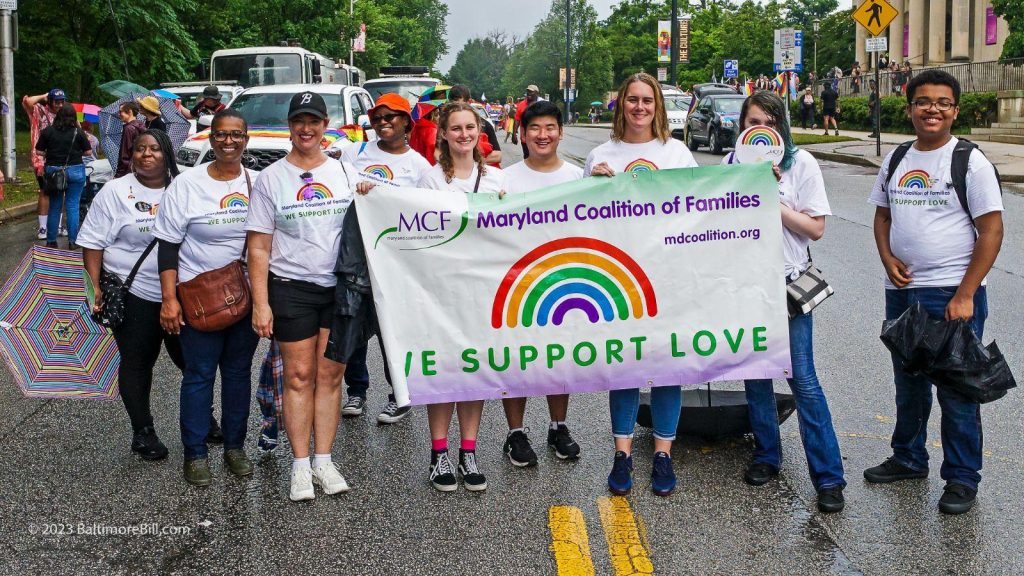
Photo courtesy of Bill Adams at Baltimore Bill
According to The Trevor Project, when an LGBTQ+ young person has at least one accepting adult in their life, they are 40% less likely to attempt suicide.
Having an affirming community makes all the difference.
For parents and caregivers, connecting with other families with similar experiences can help. We've compiled a list of common concerns and questions, answered by parents and caregivers who understand because they've been there too.
How can I make my home a safe place for my child?
Connecting with other parents who also have LGBTQ+ children can help you feel confident in supporting your child. PFLAG (Parents and Friends of Lesbians and Gays) is a great resource to connect with parents and community. Reminding your child often that you love and accept them for who they are and that you are here to listen is a great start in helping your child feel safe at home. Even small gestures like wearing a rainbow pin, placing a pride flag in your home, or attending a pride event go a long way in affirming your child.
How do I keep my child safe?
Unfortunately, the world is not always welcoming to people in the LGBTQ+ community. While as parents, we always want to protect our children, we can't prevent them from experiencing prejudice. However, you can make your home a safe space, you can advocate for LGBTQ+ affirming policies, and you can support LGBTQ+ organizations.
When my daughter told me she was transitioning to become my son, I was grieving the loss of my daughter. How do I deal with my grief and still support my child?
When a child comes out as transgender, it is common for parents to experience grief and a sense of loss, as their preconceived notions of gender and their expectations for their child's future are challenged. Studies have found that parents who have a support system in place, such as advocacy and support groups, are better equipped to overcome their grief. By overcoming their grief and supporting their child through their transition, parents can foster a healthy and positive relationship with their child and help them thrive in their new identity.
How can I do a regular mental wellness check on my child and what would that look like?
Parents should strive to regularly check in on our children's mental health. We can do this by asking curious questions and listening more than we speak when our children choose to share. Avoid comments that may leave your child feeling as if they cannot open up. Wait for them to finish speaking and give thoughtful advice when asked.
My child wants to wear LGBTQ+ advocacy shirts, hats, etc., in public. I am worried they will be a target for hate crimes. How do I share this fear I have for them but show support?
It's important for LGBTQ+ youth to feel supported in sharing their identity publicly. As parents we worry for our children's safety. You can support them by having a respectful conversation about your concerns and coaching them on how to assess risk.
What if this is just a phase?
As youth begin exploring who they are they may try on many types of personalities, gender identities, and interests. We can support the youth in our lives by allowing them to fully explore all the parts of their identity. With our love and support we can trust them to discover who they truly are.
What if I feel that this is wrong?
Parents and caregivers can still support. Most parents agree, when it comes to raising children, the ultimate goal is for our youth to grow into happy and well-adjusted adults. When a child opens up to you about gender and sexuality, acknowledging their bravery and reminding them that your love is unconditional goes a long way. Parents can support their child by becoming educated on the topic, remaining open to other perspectives, connecting with support groups, and maintaining open, loving communication.
How do I have challenging conversations with my family, friends, and my faith community?
Although these conversations can seem daunting, this is your best opportunity to be an advocate for your child. Demonstrating your unwavering support as you open these conversations with your loved ones, conveys the strong message that you love your child as they are and expect them to do the same.
